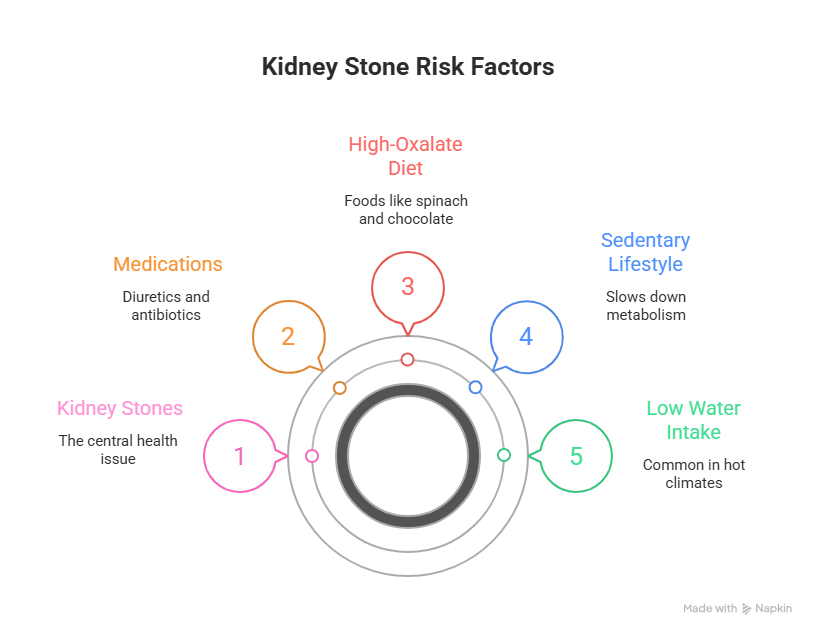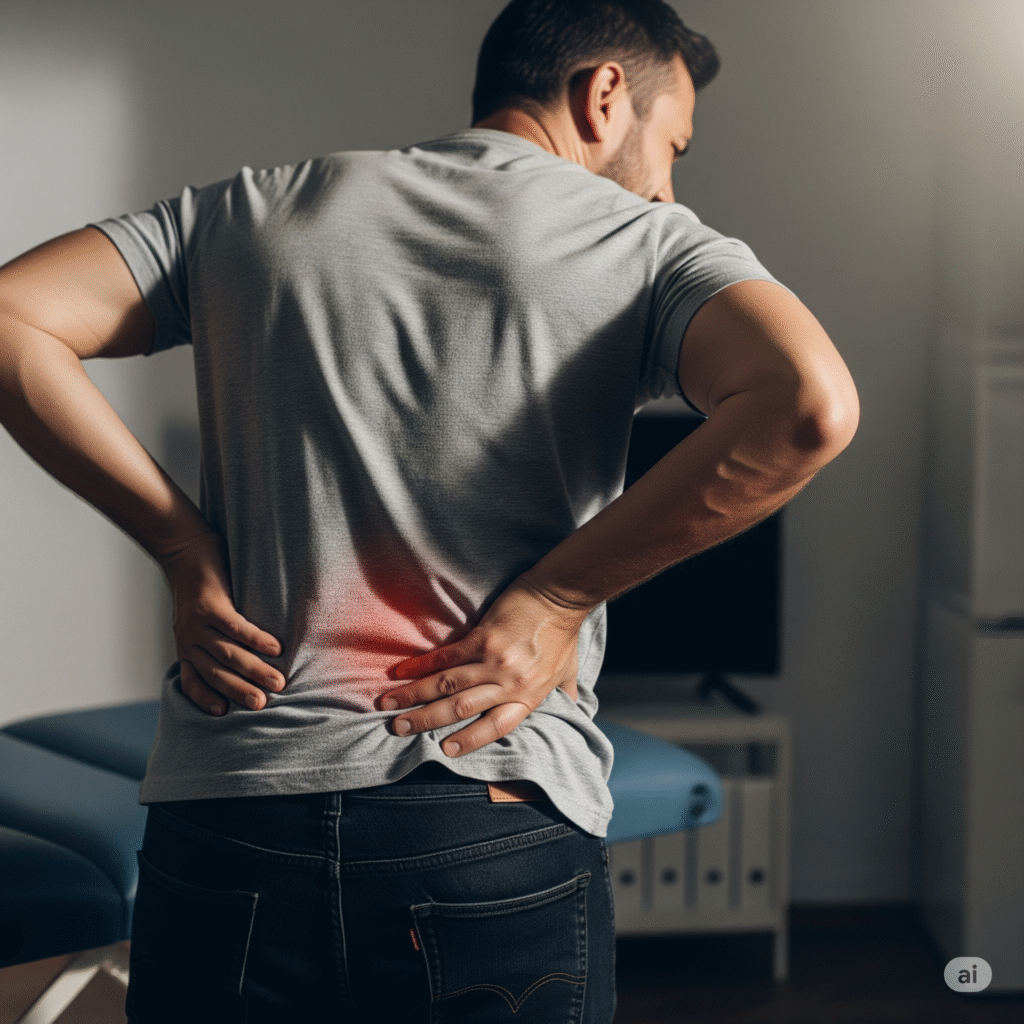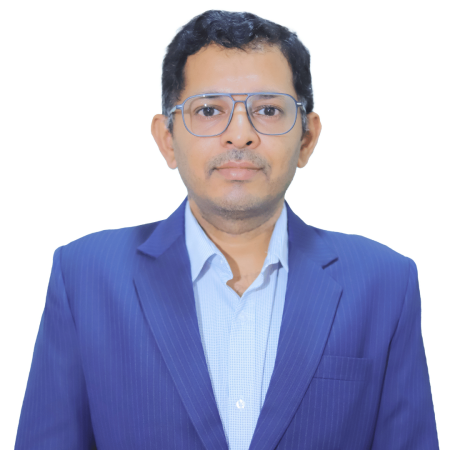Hernia Treatment in Bangalore
Kidney Stones Treatment in Bangalore

Kidney stones are one of the most common urological problems affecting adults worldwide. According to the National Kidney Foundation, 1 in 10 people will experience a kidney stone in their lifetime. In India, dehydration, sedentary habits, and dietary factors have made kidney stones treatment in Bangalore a frequent medical requirement.
At Hari Laser Clinics, our expert team offers advanced and minimally invasive laser kidney stone treatment, ureteroscopy (URS), lithotripsy (ESWL), and PCNL (Percutaneous Nephrolithotomy). Each procedure is guided by Dr. Varun Kumar J (MBBS, DNB, FIAGES) — a leading laparoscopic and laser surgeon in Bangalore with over 15 years of experience.
What Are Kidney Stones?
Kidney stones (renal calculi) are solid masses made up of mineral and salt deposits, most commonly calcium oxalate or uric acid. They form when urine becomes concentrated, allowing crystals to bond together.
Small stones (<5 mm): Often pass naturally with hydration and kidney stones treatment tablets. These cases are typically managed through medicines, hydration therapy, and diet correction.
Medium stones (5–10 mm): May require laser kidney stone treatment or lithotripsy to break them down safely. Sound waves or laser energy are used to fragment stones for easier passage through urine.
Large stones (>10 mm): Need advanced procedures like PCNL or URS for complete removal. These options ensure permanent relief and protect kidney function.
If untreated, stones can cause infection, repeated pain, or even kidney damage — making early kidney stones treatment essential.
Causes of Kidney Stones
Understanding the causes helps in prevention and personalized kidney stones treatment planning.
Dehydration: Not drinking enough water leads to concentrated urine, the biggest trigger for stones.
High salt intake: Excess sodium raises calcium in urine, forming calcium-based stones.
High protein diet: Too much meat or fish increases uric acid levels.
Genetics: Family history raises your lifetime risk.
Obesity: Alters urine composition, encouraging stone formation.
Chronic medical issues: Gout, inflammatory bowel disease, and UTIs increase susceptibility.
Risk Factors for Kidney Stones
Certain individuals are naturally predisposed to kidney stones. Recognizing these risks allows for proactive management.
Men aged 30–50 years: Most affected group globally.
Low water intake: Common in hot climates like Bangalore.
Recurrent urinary infections: Encourage stone buildup.
Sedentary lifestyle: Slows down metabolism.
High-oxalate diet: Spinach, nuts, and chocolates contribute to oxalate accumulation.
Medications: Certain diuretics or antibiotics can raise risk.
Early diagnosis and preventive habits significantly reduce the chance of recurrence.

Freedom from Kidney Stones
Don’t Suffer Anymore!!

Book your Appointment!
Symptoms of Kidney Stones
The symptoms vary depending on the stone’s size and location, but typical signs include:
Severe back or flank pain: Often radiating to the groin; caused by obstruction.
Blood in urine: Indicates irritation of the urinary tract.
Painful urination: Sharp burning sensation during urination.
Nausea and vomiting: Common when stones block urinary flow.
Frequent urination: Especially in smaller stones near the bladder.
Fever or chills: Suggestive of infection requiring urgent medical care.
If you experience these signs, consult for prompt kidney stones treatment in Bangalore to avoid complications.
Diagnosis of Kidney Stones
Accurate diagnosis ensures the most effective kidney stones treatment. At Hari Laser Clinics, we use advanced imaging and lab tests:
Urine Test: Detects crystals, blood, or infection.
Ultrasound: First-line test to visualize stones and their position.
X-ray (KUB): Identifies large or dense stones.
CT Scan: Gold standard for detecting even 1–2 mm stones.
Our goal is quick diagnosis and personalized treatment planning.
Treatment Options for Kidney Stones in Bangalore
Every case is unique — and at Hari Laser Clinics, your kidney stones treatment is personalized according to stone size, composition, and location.
For very small stones, medication and lifestyle correction may help them pass naturally.
Pain relievers reduce discomfort during passage.
Alpha-blockers relax ureter muscles for smooth flow.
Hydration helps flush out small crystals effectively.
Best for patients with mild symptoms or 2.5–4 mm stones.
A non-invasive procedure using focused sound waves to break stones into tiny fragments.
Ideal for stones <2 cm.
No cuts, stitches, or hospitalization.
Patients resume normal activity within 24 hours.
One of the most comfortable options for moderate kidney stones treatment in Bangalore.
A thin telescope (ureteroscope) is passed through the urinary tract to locate and fragment stones using laser energy.
Suitable for stones in the ureter or lower kidney.
Bloodless and stitch-free.
Same-day discharge.
Often termed “laser kidney stone treatment,” URS ensures precision and quick recovery.
Used for large or multiple stones (>10 mm), such as 18 mm or complex kidney stones.
A tiny incision at the back is made to reach and extract stones.
Offers high success rates and complete clearance.
Short hospital stay of 1–2 days.
Recommended for advanced or recurrent kidney stones.
Reserved for complicated or anatomical abnormalities.
Highly precise and controlled.
Shorter recovery time than traditional open surgery.
With advanced technology, 90% of our patients now recover through minimally invasive methods like ESWL, URS, or PCNL instead of open surgery.
Minimally Invasive vs Open Surgery
| Feature | Minimally Invasive (ESWL / URS / PCNL) | Open Surgery |
|---|---|---|
| Cut Size | Small / No Cut | Large Incision |
| Pain | Minimal | Moderate to Severe |
| Recovery Time | 2–7 Days | 3–4 Weeks |
| Hospital Stay | Daycare / 1 Day | 3–5 Days |
| Scarring | Almost Invisible | Visible |
| Recurrence Risk | Very Low | Moderate |
Benefits of Modern Kidney Stones Treatment
Modern technologies like laser and shockwave therapy have made treatment faster, safer, and nearly painless.
Quick Pain Relief: Stones are removed or fragmented with minimal trauma.
Faster Recovery: Resume routine life within 2–5 days.
Daycare Procedure: Most patients go home the same day.
Minimal Scars: Cosmetic outcomes are excellent.
Low Recurrence Risk: Complete capsule removal prevents regrowth.
Pre-Care Instructions
Preparing well ensures safety and smooth recovery.
Hydrate but follow fasting rules: Water is essential, but fasting may be required before anesthesia.
Share medical history: List all medications and allergies.
Avoid smoking & alcohol (48 hrs): Improves healing and anesthesia safety.
Complete pre-procedure tests: Blood, urine, and imaging for safety clearance.
Post-Care Instructions
After kidney stones treatment, following these steps ensures optimal recovery:
Drink 3–4 liters of water daily: Helps flush out fragments and toxins.
Follow a kidney-friendly diet: Limit salt, reduce red meat, and increase citrus fruits.
Take medicines as prescribed: Complete antibiotics and painkillers as directed.
Avoid heavy lifting for 5–7 days: Prevents pressure on healing tissues.
Attend follow-ups: Ensures proper healing and prevents recurrence.
Recovery Timeline
| Phase | Expected Progress |
|---|---|
| Day 0 | Procedure completed; discharge within 24 hours. |
| Day 2–3 | Resume light activities. |
| Day 5–7 | Return to office work. |
| Week 2–3 | Resume exercise and heavy tasks. |
Prevention of Kidney Stones
Simple lifestyle adjustments can prevent recurrence:
Drink 3 liters of water daily: Keeps urine diluted.
Reduce salt intake: Avoid processed foods.
Limit animal protein: Prevents uric acid buildup.
Add citrus fruits: Lemon and oranges reduce calcium stone risk.
Maintain healthy weight: Prevents metabolic imbalances.
About the Author - Dr. Varun Kumar J

MBBS, DNB (General Surgery), FIAGES, FMAS
Dr. Varun Kumar J,
MBBS, DNB (General Surgery), FIAGES, FMAS
General & Laparoscopic Surgeon | Laser & Varicose Vein Specialist
Dr. Varun Kumar J is an experienced Laparoscopic and Laser Surgeon in Bangalore with over 14 years of expertise in minimally invasive surgery. He specializes in piles, fissure, fistula, varicose veins, and hernia treatments using advanced laser techniques.
Known for his compassionate care and precision, Dr. Varun ensures every procedure is safe, simple, and stress-free for his patients.
Experience: 14+ Years
Hospitals: Medfine Hospital & Hari Laser Clinics, Bangalore.
Why Choose Hari Laser Clinics?
Advanced Laser Techniques
We use USFDA-approved laser treatments for painless and scar-free piles removal. These minimally invasive techniques ensure faster recovery and reduced pain compared to traditional methods.
Expert Care by Dr. Varun Kumar J
Dr. Varun Kumar J ensures each treatment is personalized for the patient’s needs, providing comprehensive care for long-term relief.
Quick Recovery
Most patients can resume normal activities within 24 hours due to our non-invasive procedures and fast healing.
Post-Surgery Support
Our dedicated team offers post-treatment guidance, including follow-ups and recovery tips to promote optimal healing.
Commonly Asked Questions
What is the best treatment for kidney stones?
Lithotripsy (ESWL) or URS with laser for moderate stones; PCNL for large stones.
Can kidney stones pass naturally?
Yes, if they’re smaller than 5 mm. Larger ones require medical or laser treatment.
Is kidney stone surgery painful?
Minimally invasive surgeries are virtually painless under anesthesia.
How long does recovery take?
Usually 2–3 days for ESWL/URS, 5–7 days for PCNL.
How can kidney stones be prevented?
Drink more water, eat citrus fruits, and reduce salt and protein intake.
